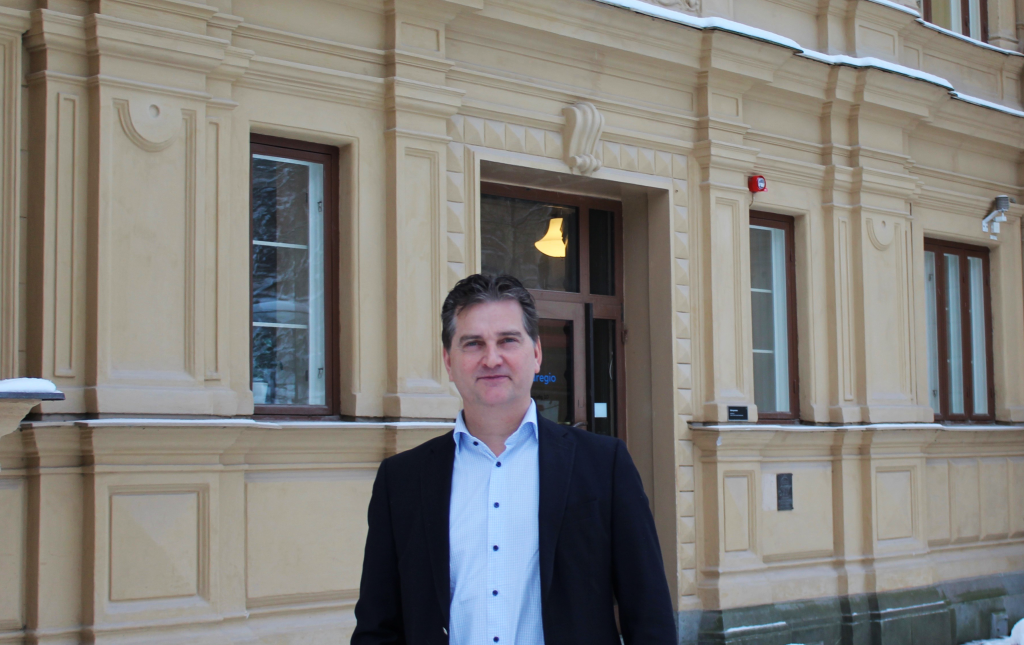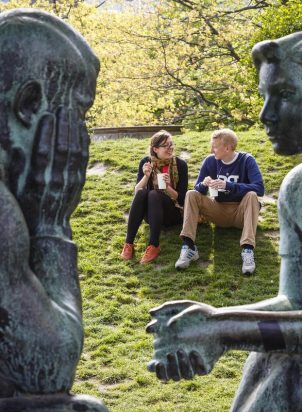This week we welcome the new Director of Nordregio, Rolf Elmér. We discussed the challenges he expects to tackle, the expectations for his mandate and what he considers is imperative to focus on.
We know that you come from the private sector And how do you think this will influence your work in the public one now, at a Research Center?
Rolf Elmér: Since I have a long experience working in both the private sector and in a national employer’s organisation, I can leverage that and use it in our communication and, perhaps help mobilise and engage with companies in the private sector. I think that’s very important. If we want to reach our goal, the vision of a greener new society, we have to have the companies’ support and understanding of new policies. It is they who will innovate and provide the new, smarter and greener solutions for consumers. So it’s very good to have a direct connection between the public sector and the private sector.
And what are some challenges you’re expecting to tackle first?
RE: I think the first challenge I have is trying to make the Nordic Region’s vision as the greenest and most integrated region in the world operational for Nordregio. To create efficient and very effective programs and projects that can help all of us go in that direction and really leverage the strengths of the Nordic Collaboration. Because 2030 is around the corner and we have to make haste to ensure real progress. So I think that’s a big operational task ahead of us to get programs and metrics in place.
And what are you most looking forward to at the beginning of your mandate?
RE: I enjoy very much working in a multinational environment, with people from all over the world, where everyone is inspired by doing good things together. And that’s fantastic! I think it’s really exciting to be part of a bigger journey that tries to make good foundations for good policy decisions. So I think the work we are doing here is increasingly important. We will also review and update our Nordregio strategy according to changes in the environment and expectations for us as a leading research institute which will be a really good way for me to set the direction forward.
What are your hopes for these eight years? And how do you see Nordregio grow or develop within the Nordic cooperation?
RE: I think that a challenge for all research institutions is that there seems to be increasing populism in the societal debate, leading to more pressure on institutions to create science with certain perspectives or fit into popular narratives. So, I think it’s very important to ensure both the research quality and research integrity,y so that we are not influenced by factors we should not be. I think our role is of growing importance. So I hope I can contribute to making Nordregio a big part of politicians’ policy decisions in the Nordics, even more so than today. I believe this is very important for us going forward and for the many prioritizations that have to be made if we’re going into a greener society without it becoming a poorer society. We need clever solutions that will enable everyone to be included in the developments, leaving different regions or parts of the population behind. There are areas in the Nordics which are steaming ahead. Still, we have to ensure that everyone’s with us on the train. We have new opportunities developed everywhere in the Nordics according to the potential of the local economy. So these are very interesting challenges. If you really have the facts on the table, it’s easier to make rational decisions. At the same time, I think the communication side is extremely important. If we just deliver good facts and nobody uses them, we don’t help produce a change in society. So we have to work a lot by engaging with the private sector, politicians, and the public. Let them know what we are doing and what we’re trying to achieve. I think that’s very important.
Dr Elmér is taking over the position after Nordregio’s previous Director, Kjell Nilsson, has retired. Rolf Elmér holds a doctorate in physics from Lund University since 1996 and an Executive MBA from the Stockholm School of Economics, obtained in 2004, while also bringing the experience and knowledge he gained while working with research institutions, organisations and the private sector.




